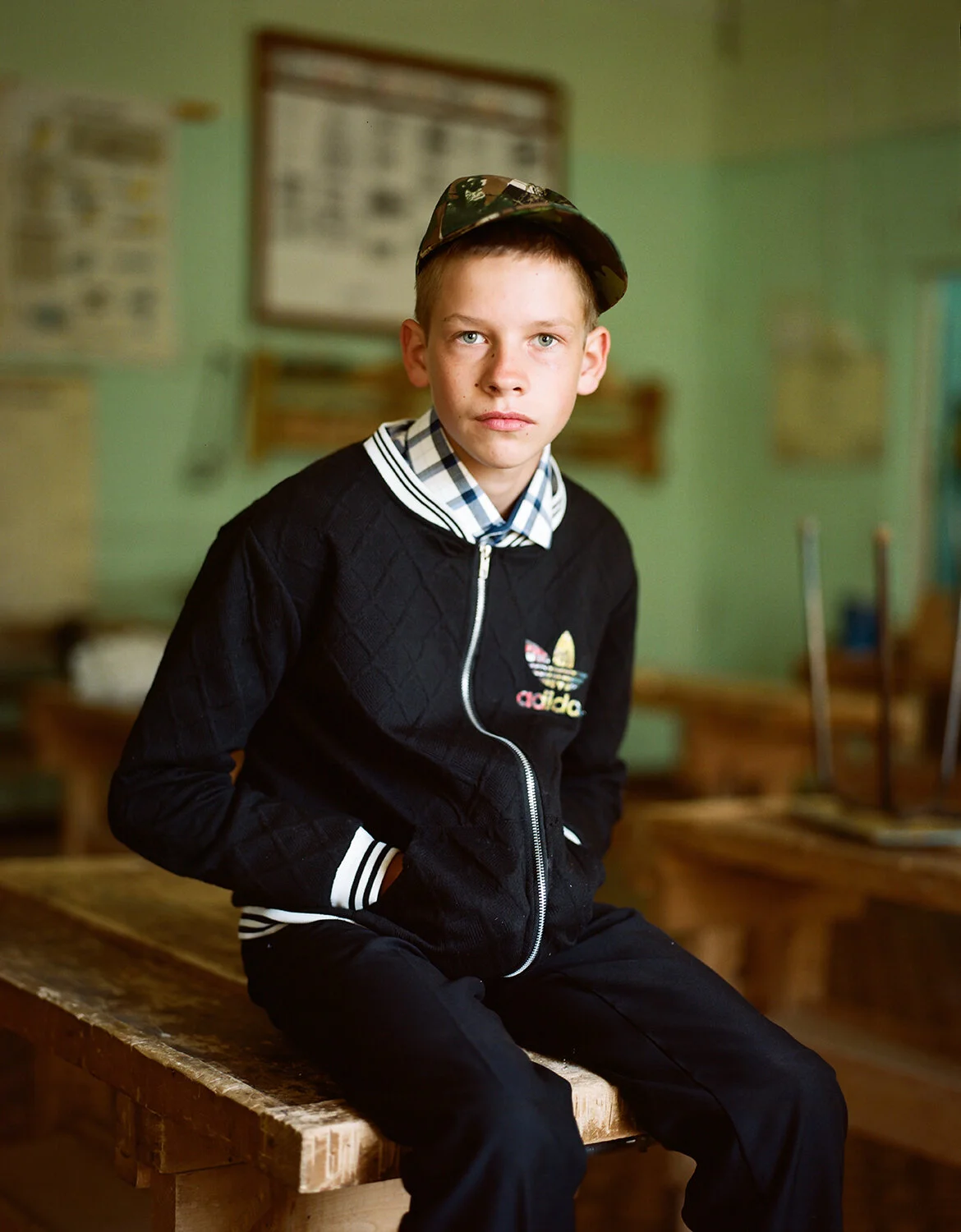Yana Pirozhok - My Dad is a School Bus Driver
East of the European Plain, and in the Western slope of the Middle Ural Mountains, is the Russian region of Perm Krai . It’s Uralic etymology indicates what life is like living within Russia’s rural foothills, a “far-away land” on the geologic “edge” or “verge” of nature. The region is scattered with small, homely villages such as Markovo, Taz Russky and Taz Tatarsky. Each morning the local children wait for Yana’s father– a school bus driver who will take them to their high school in the larger village of Kylapovo. In 2018, Yana first conceived this series as a photographic essay about village schoolchildren. However, as her photography brought her back to her parents’ village, the project became largely focused on her father, in an attempt to further understand him, see his life, and to ultimately confront the emotional distance between her, and her childhood in Perm Krai.
My Dad is a School Bus Driver
All my life I have lived with the feeling that my father has never loved me or has not loved me enough. My childhood trauma had manifested into my complex of a “disliked daughter”. However, there came a moment in my creativity, when I realized that through photography, I had a chance to deal with my inner demons. It turned out to be very personal, and painful at first, but ultimately a liberating experience about my difficult relationship with my dad. My dad is a school bus driver. He is a pensioner, but still has to work. He goes to small villages, collects children and takes them to school for classes.
I made several attempts to persuade him to take me with him to work, but my father refused, he’d tell me, “you’d better find a proper business”. This turned into a month of long conversations with him. For the first time in my life, I sincerely tried to open up to him in complete honesty, explaining why this was important to me, why I left architecture for the sake of photography, and what this strange–in his mind–practice means to me.
“No.” Said dad, “and that is the point.”
I waved my hand and went to make meat dumplings with my mom, running through my head, wondering what to do next and that maybe, it would all be okay if nothing came out of this. The next day, he told me, “tomorrow, Yana, get ready for work, get up at 6 am, you cannot be late, I arranged with the school principal, you are allowed to shoot anytime and anything on the school grounds.” A wave of conflicting feelings hit me: I was very ashamed that I did not believe in him and gave up, and very happy because my father made an effort, and tried to understand and accept me for who I was and what I wanted to do.
I went with him to work all week, and those were some of the best and most beautiful days in my life. We drove through fields and pastures, and at some point, dad suddenly took interest in my project and started to “supervise” it–this actually rather bothered me, but it was at the same time very touching. He’d slow down the speed of the herd of cows or fields with bales of hay and shouted at me to the salon bus, “Yana, shoot! Beauty!” And I shot and laughed.
When he found out that I wanted to take a couple of shots of the school cafeteria and cooks, he told me “wait here!” And quickly left to negotiate on the chef's caps , “they have to be beautiful! it's for art! ”
“Well, paaaaaapa”, I moaned, “it's a documentary photo, paaaapa, you can't intervene here.” But I was happy because I saw such a sympathetic father. During the day, he went to the senior boys (secretly for me) and asked them not to hide when they would smoke at the school, because “Yana takes pictures of life, everything should be real!” Not only did this project help me overcome my traumatic memories of the village school through observing the children and talking to them, but it also allowed me to mend the relationship with my father, bond with him, get to really know him, open myself up to him, and realize, importantly, that if someone can’t express their love, it doesn’t mean they don’t love you.


























